




-
Application
- Industry
- Heating industry
- Individual solutions
- Law regulations
- Certification
- Research and development
- Public perception
- Investment map
-
Transport
- Hydrogen buses
- Hydrogen trains
- Special vehicles
- Law regulations
- Certification
- Research and Development
- Public perception
- Investment map
-
Production
- Technology
- Green hydrogen from Renewable Energy Sources
- Grey hydrogen
- Hydrogen production from biomass
- Law regulations
- Certification
- Research and development
- Public perception
- Investment map
-
Transmission, Storage
- implementation of hydrogen technologies in the power sector,
- use of hydrogen as an alternative fuel in transport,
- support for the decarbonisation of industry,
- production of hydrogen in new installations,
- efficient and safe distribution of hydrogen,
- creation of a stable regulatory environment



Cookies
Informujemy, iż w celu optymalizacji treści dostępnych w naszym serwisie, dostosowania ich do Państwa indywidualnych potrzeb korzystamy z informacji zapisanych za pomocą plików cookies na urządzeniach końcowych użytkowników. Pliki cookies użytkownik może kontrolować za pomocą ustawień swojej przeglądarki internetowej. Dalsze korzystanie z naszego serwisu internetowego, bez zmiany ustawień przeglądarki internetowej oznacza, iż użytkownik akceptuje stosowanie plików cookies. Czytaj więcej Polityka prywatności
Application
Law regulations regarding implementation of hydrogen technologies in Poland
Implementation of the new technology requires the creation of an appropriate environment and legal regulations so that changes can take place smoothly. In Poland, the basic act establishing a hydrogen-based economy is to be the Polish Hydrogen Strategy. In EU legislation, the key document is the European Parliament's Alternative Fuels Directive.The EU Directive of 22 October 2014 on the development of alternative fuels infrastructure (AFID - Alternative Fuels Infrastructure Directive) obliges Member States to build an appropriate number of refuelling stations by the end of 2025. However, this number is not specified and is to result from the national policy adopted in each country.
Poland implemented the AFID Directive into the national legal order with the Act of 11 January 2018 On Electromobility and Alternative Fuels. This law was last amended on 24 May 2020. Under its provisions, hydrogen is treated as an alternative fuel. The law envisages supporting collective and individual users by introducing the possibility for hydrogen-powered vehicles to enter Clean Transport Zones and tax incentives in the form of exempting such cars from excise duty.
On 17 October 2019, the Council of Ministers adopted by circulation the updated "National policy framework for alternative fuel infrastructure". The document sets out the technical specifications of the infrastructure for gaseous hydrogen refuelling in motor vehicles, the purity of hydrogen dispensed by hydrogen refuelling points and the rules for selecting an electricity seller for charging electric vehicles.
Polish regulations already lay down rules on the production and storage of hydrogen, technical supervision of equipment for handling, transporting and storing hydrogen, fire protection, occupational health and safety, and emergency services. Existing regulations apply more broadly to gaseous and hazardous fuels, which also include hydrogen. However, the most awaited normative act, which will become a reference point for the whole Polish market, is the Polish Hydrogen Strategy. The document being drafted by the Ministry of Climate and Environment was submitted to public consultation. "The Polish Hydrogen Strategy until 2030 with a perspective until 2040" assumes first of all 6 necessary goals to be achieved:

The strategy defines a total of 40 different actions to support the Polish economy in using its technological, scientific and research potential in the development of hydrogen technologies. Among them it emphasizes the need to create regulations that "will remove barriers to the development of the hydrogen market and encourage the gradual increase in the use of RES for electrolysis".
The creation of a legal framework will require the reformulation of as many as 14 provisions, including the Energy Law, Electromobility and Alternative Fuels, Fuel Quality Monitoring and Control System, Renewable Energy Sources, Water Law, etc. A key element for further dissemination of hydrogen in Poland will also be the establishment of hydrogen valleys and local and international partnerships - currently the Ministry of Climate and Environment reports as many as 150 signed letters of intent.
Selected aspects of the current legal landscape
An important aspect of hydrogen technology development in our country is Power to Gas (P2G) technology, which uses electrolysis to produce hydrogen.
Currently, Polish law does not regulate the standards for connecting an electrolyser to the grid. A separate challenge is also to create a fair charging system. For the time being, there is a double one - for electricity in settlements with storage facilities and for providing transmission or distribution services. The lack of appropriate legal provisions also complicates investments in the relevant infrastructure. Currently, connection conditions for installations are determined by the local operator, and if the capacity of the installation exceeds 5 MWh, an additional expert assessment is required to determine its impact on the local ecosystem.
Another important element for companies and individual users will be the quality of the fuel itself. Currently, the equipment and algorithms for open-air hydrogen refuelling are defined by the ISO/TS 20100 standard, and the purity of hydrogen dispensed by refuelling points is described by the ISO 14687-2 standard. The equipment for connecting and refuelling gas in motor vehicles is contained in ISO 17268. Changes to the law are required both in the definition of hydrogen itself as a fuel and in the creation of regulations on fuel parameters depending on motor vehicle specifications. Sampling for hydrogen analysis needs tidying up, as well as defining how the inspection process itself will be carried out.
The available draft of the Hydrogen Strategy also takes into account issues related to hydrogen transmission. Current provisions in the Energy Law suggest the need for the distributor to have a special licence. The authors of the strategy recommend abandoning the idea of licensing hydrogen to create a friendly climate for the development of this technology in our country. The Ministry of Climate and Environment assumes that Poland should build an infrastructure that would be part of the European hydrogen refuelling network by 2025. The source of funding for these investments may be the Reconstruction Fund - details are currently part of inter-ministerial arrangements and consultations. The Act of 11 January 2018 on electromobility and alternative fuels (consolidated text of 22 May 2020) defines the development of alternative fuel stations and the legislative framework within which they should be established. The act takes into account refuelling solutions for both private traffic and the increasingly common zero-emission buses purchased by cities in Poland. It also defines the standards to be met by the station and the tests and inspections within its operation. As for the vehicle itself, since one of the components of hydrogen cars is a compressed hydrogen system, their introduction onto the market requires type-approval. At present, the relatively high price of hydrogen technology is also a challenge, which is why a number of subsidies have already been launched from both national and EU funds for companies, local authorities and private entities to purchase hydrogen powered vehicles.
Storing hydrogen involves the risk of the gas expanding, which is why the storage tanks are also covered by a number of legal solutions. They can only be used on the basis of a decision authorising their use, issued by the Director of Transport Technical Supervision. At the same time, technical requirements for testing and operation of specialised pressure equipment, which includes the above-mentioned tanks, are set out in the regulation on specialised pressure equipment, referred to as the SUC247 regulation, and should obligatorily be subjected to tests performed by the TDT. In accordance with the requirements of the SUC Regulation, in the course of operation of H2 hydrogen containers, used for powering internal combustion engines in vehicles, periodic and ad hoc tests are carried out as: internal inspections, pressure tests, external inspections and leakage tests.
Most of the legal solutions functioning today are based on already existing laws and regulations. With the announcement of the Polish Hydrogen Strategy, Polish legislation faces further changes so as to create favourable and safe conditions for the implementation of hydrogen as a solution in successive sectors of the national economy. The future of hydrogen in Poland depends on a combination of appropriate legal standards with effective funding mechanisms and the activity and innovation of Polish entrepreneurs, ready to develop new technologies and ideas in cross-sector partnerships.
Redakcja





